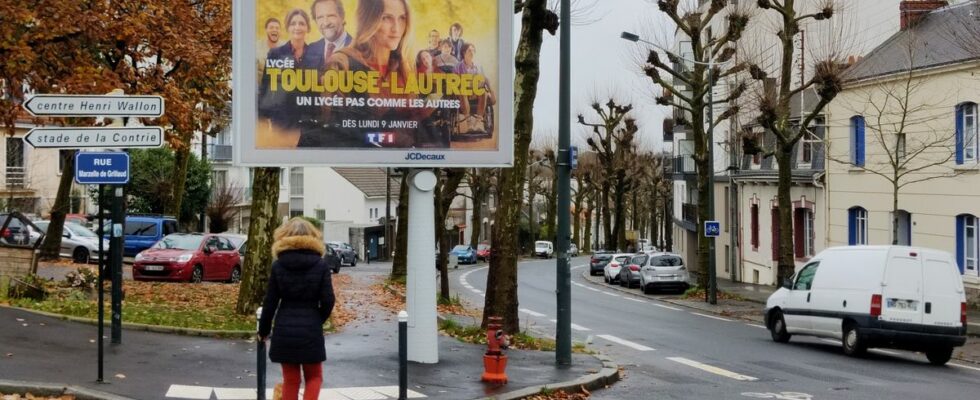“This is a significant reduction that should not go unnoticed. But that’s the point of the story. Times have changed. There are high expectations from residents on this subject. Thomas Quéro (PS), deputy mayor of Nantes, defends the spectacular dismantling of billboards which began on Wednesday evening. Some 120 supports of 8 m2 and 2 m2 are indeed removed by Thursday noon by the display JCDecaux in order to comply with the new local advertising regulations (RLPm) adopted by Nantes Métropole.
The text, approved in June, now prohibits advertising on nearly 70% of metropolitan territory and provides for the dismantling of a thousand panels within two years. “The idea is to reduce the number of supports in order to improve the landscape, offer unobstructed views, especially in the historic city center. It is also a question of thinking about the climate and reducing energy consumption”, justifies Thomas Quero.
Less revenue for the community
In addition to the removal of all the 12 m2 signs, one of the notable aspects of the Nantes plan is the prohibition of any display in natural and agricultural areas, as well as within a perimeter of 50 m around schools (from the kindergarten to college) in order to “protect the youngest” against the incitement to “hyper consumption”. The new regulation, which also includes strong restrictions on digital screens and light devices, led to the renegotiation of the street furniture contract concluded in 2017 with JCDecaux when it ran for 20 years.
With a direct consequence: a shortfall of approximately 3.5 million euros per year for the metropolis (the fee paid to the community amounted to 6.6 million euros in 2021 and could climb up to 11 million euros per year). “Of course, there is a loss of revenue, recognizes the deputy mayor of Nantes. But it is a societal choice that we assume. We must also put things into perspective with regard to the budget of a metropolis like ours, which is around 1 billion euros. »
“Nantes is the first city of this size to work on such a request with us”, reacted Valentin Gourdon, regional director of JCDecaux in Pays-de-la-Loire and Brittany. The display, which holds the market for most major French cities, is aware that the current trend is not favorable to its business. But he insists on the “quality of service” preserved with a “new mesh” of the remaining advertising panels.
In Grenoble, Lyon, Bordeaux, Rennes…
“What we regret is that, when we remove a panel, we certainly remove a commercial display capacity but we also reduce the capacity of the metropolis and its associations to communicate with its inhabitants. We also gain visibility for local advertisers and regional businesses. We also withdraw a means of financing public services thanks to the income brought in by advertising, ”advances Valentin Gourdon, recalling that the panels are installed, cleaned and maintained by the private company. “This furniture is absolutely essential to the company, adds the regional director. The bus shelters that we make available, for example, at a time when we are developing public transport, we could not do without them. »
JCDecaux mobilized 50 people for the dismantling in two days of its 120 panels located in the Nantes public space. This equipment will be deployed in other cities. The dismantling of the panels of the Nantes metropolis placed on the private space, much more numerous, must take place by mid-2024.
Several other French cities, such as Grenoble, Lyon, Bordeaux, Rennes or Rouen, have decided to significantly reduce the presence of advertising in the public space on the occasion of the renewal of their market. Some cities, like Angershave entered into similar negotiations with their contracted display.

